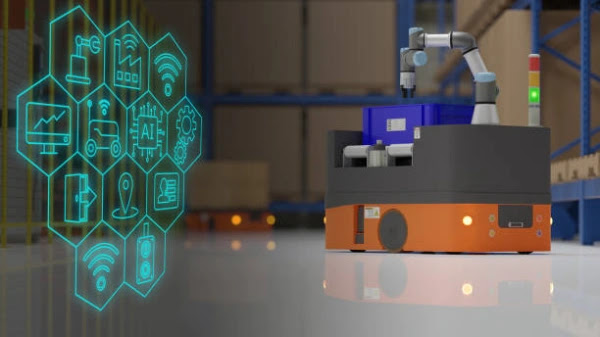Featured
- Get link
- X
- Other Apps
Quantum Computing
Potential in Smart Solutions
Introduction
Quantum computing represents a revolutionary leap forward in
computational power and capabilities, offering the potential to solve complex
problems that are beyond the reach of classical computers. As quantum computing technology continues to advance, there is growing interest in its potential
applications across various domains, including smart solutions for industries,
governments, and society as a whole. This article explores the principles of
quantum computing, its unique features, potential applications in smart
solutions, and the challenges and opportunities it presents for innovation and
transformation.
Understanding Quantum Computing:
Quantum computing harnesses the principles of quantum
mechanics to perform calculations using quantum bits, or qubits, which can
represent multiple states simultaneously. Unlike classical bits, which can only
be in one of two states (0 or 1), qubits can exist in a superposition of
states, allowing quantum computers to process vast amounts of data and perform
parallel computations at unprecedented speeds.
Key concepts in quantum computing include:
- Superposition: Qubits can exist in
a superposition of states, enabling quantum computers to perform multiple
calculations simultaneously.
- Entanglement: Qubits can become
entangled, meaning the state of one qubit is correlated with the state of
another qubit, regardless of the distance between them. This phenomenon
allows quantum computers to perform highly complex computations and solve
problems that are intractable for classical computers.
- Quantum interference: Quantum
computers leverage quantum interference to enhance computation efficiency
and accuracy by exploiting the wave nature of quantum particles to amplify
desired outcomes and suppress unwanted ones.
Potential Applications of Quantum Computing in Smart Solutions:
Quantum computing holds tremendous potential for
transforming smart solutions across various industries and sectors. Some key
applications include:
- Optimization: Quantum computing
can revolutionize optimization problems by finding optimal solutions to
complex problems with vast solution spaces, such as logistics, supply
chain management, and financial portfolio optimization. Quantum
algorithms, such as the Quantum Approximate Optimization Algorithm (QAOA)
and the Variational Quantum Eigensolver (VQE), promise to outperform
classical optimization techniques by leveraging the unique capabilities of
quantum computing.
- Machine learning and AI: Quantum
computing can accelerate machine learning and AI algorithms by enabling
the efficient processing of large-scale data sets and the exploration of
complex models and architectures. Quantum machine learning algorithms,
such as quantum neural networks and quantum support vector machines, offer
the potential to unlock new insights and capabilities in pattern
recognition, data analysis, and predictive modeling.
- Cryptography and cybersecurity: Quantum
computing poses both challenges and opportunities for cryptography and
cybersecurity. On one hand, quantum computers have the potential to break
widely used cryptographic algorithms, such as RSA and ECC, which rely on
the difficulty of factoring large prime numbers or solving discrete logarithm
problems. On the other hand, quantum cryptography offers the promise of
secure communication channels based on the principles of quantum
mechanics, such as quantum key distribution (QKD), which provides
unconditional security against eavesdropping attacks.
- Drug discovery and material science:
Quantum computing can accelerate the discovery of new drugs and materials
by simulating molecular structures, chemical reactions, and physical
properties with unprecedented accuracy and speed. Quantum simulation
algorithms, such as the Variational Quantum Eigensolver (VQE) and the
Quantum Chemistry Package (QChem), enable researchers to model complex
molecules and predict their behavior with greater precision than classical
methods, paving the way for breakthroughs in pharmaceuticals, materials
science, and quantum chemistry.
- Climate modeling and environmental
science: Quantum computing can advance climate modeling and
environmental science by simulating complex Earth systems, weather
patterns, and climate phenomena with greater fidelity and resolution than
classical computers. Quantum simulation algorithms, such as the Quantum
Approximate Optimization Algorithm (QAOA) and the Quantum Phase Estimation
(QPE), enable researchers to model atmospheric dynamics, ocean
circulation, and ecosystem interactions, leading to more accurate
predictions of climate change impacts and mitigation strategies.
Challenges and Opportunities:
While quantum computing holds great promise for smart
solutions, it also presents several challenges and opportunities that must be
addressed to realize its full potential:
- Hardware limitations: Quantum
computing hardware is still in its early stages of development, with
current quantum computers facing challenges such as decoherence, noise,
and error rates that limit their performance and scalability. Addressing
these hardware limitations requires advances in qubit coherence times,
error correction techniques, and fault-tolerant quantum computing
architectures.
- Algorithm development: Quantum
algorithms must be developed and optimized to take advantage of the unique
capabilities of quantum computers while mitigating the effects of noise
and errors. Developing quantum algorithms requires interdisciplinary
collaboration between physicists, computer scientists, mathematicians, and
domain experts to design, implement, and validate algorithms that
outperform classical counterparts on real-world problems.
- Access and education: Access to
quantum computing resources and expertise remains limited, hindering the
adoption and development of quantum algorithms and applications. Building
a diverse and inclusive quantum workforce requires investments in
education, training, and outreach programs that promote quantum literacy,
diversity, and inclusion across academic institutions, industry, and
government agencies.
- Ethical and societal implications:
Quantum computing raises ethical and societal questions related to
privacy, security, and equity that must be addressed proactively. As
quantum computing enables new capabilities in data analysis, surveillance,
and cryptography, stakeholders must consider the ethical implications of
quantum technologies and develop policies, regulations, and guidelines to
ensure responsible and equitable use of quantum computing resources and
applications.
Future Directions:
Despite the challenges, quantum computing holds the
potential to revolutionize smart solutions and address some of the most
pressing challenges facing society. Future directions for quantum computing
research and development include:
- Hardware innovation: Advancing
quantum computing hardware, including qubit technologies, quantum
processors, and quantum error correction, to improve performance,
scalability, and reliability.
- Algorithmic breakthroughs:
Developing new quantum algorithms and optimization techniques that exploit
the unique properties of quantum computing to solve real-world problems
more efficiently and accurately.
- Interdisciplinary collaboration:
Fostering interdisciplinary collaboration between researchers,
practitioners, and stakeholders from diverse fields, including physics,
computer science, mathematics, chemistry, biology, and engineering, to
drive innovation and address complex challenges.
- Education and outreach: Promoting
quantum literacy, diversity, and inclusion through education, training,
and outreach programs that engage students, educators, policymakers, and
the general public in the opportunities and implications of quantum
computing.
- Policy and governance: Developing policies, regulations, and governance frameworks that ensure responsible
and equitable use of quantum computing technologies while addressing
ethical, legal, and societal concerns.
Conclusion
Quantum computing holds immense promise for transforming
smart solutions across various industries and sectors, offering the potential
to solve complex problems that are beyond the reach of classical computers. By
leveraging the principles of quantum mechanics, quantum computing enables
breakthroughs in optimization, machine learning, cryptography, drug discovery,
climate modeling, and other domains, leading to advancements in science,
technology, and society as a whole. As quantum computing technology continues
to advance, stakeholders must collaborate, innovate, and address challenges to
realize the full potential of quantum computing in building smarter, more
resilient, and more equitable solutions for the future.
- Get link
- X
- Other Apps


